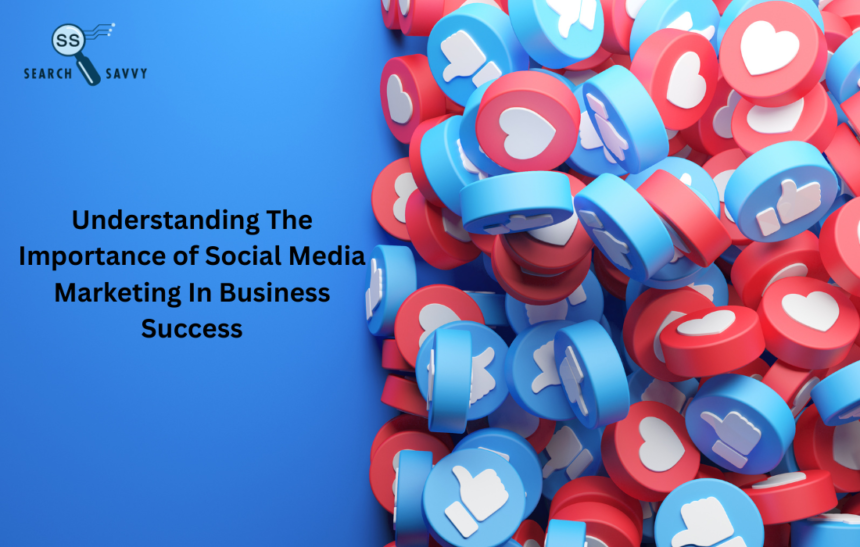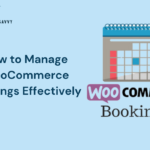Benefits of Social Media Marketing
Social media marketing is an essential tool for businesses of all sizes to connect with prospects and customers, and it offers several key benefits. Here are three important advantages of utilizing social media marketing:

Humanizes businesses and builds trust with audiences: Social media platforms such as Facebook, Instagram, and LinkedIn provide businesses with an opportunity to showcase their personality and create a more personal connection with their audience. By engaging with followers, responding to comments and messages, and sharing relevant and relatable content, businesses can humanize their brand and build trust with their audience.
- Drives website traffic and indirect SEO benefits: Social media marketing can help generate traffic to a business’s website. By sharing links to blog posts, products, or landing pages, businesses can drive more visitors to their website, increasing the opportunity for conversions.
Additionally, social media signals can have an indirect impact on search engine optimization (SEO), as search engines take into account social media engagement when determining search rankings. - Generates leads and conversions directly on platforms: Social media platforms offer various advertising and promotion options that can drive leads and conversions directly on the platform. By utilizing features such as lead generation forms or “shop now” buttons, businesses can capture leads and convert them into customers without the need for users to leave the platform.
Key Essentials of a Successful Social Media Marketing Strategy
To implement an effective social media marketing strategy, businesses need to consider several key essentials. Here are three essential components:
- Clear brand identity and structured content strategy: A successful social media marketing strategy requires a clear understanding of the brand’s identity and value proposition. By defining the brand’s voice and personality, businesses can create content that resonates with their target audience.
Additionally, a structured content strategy ensures consistency in messaging and provides a roadmap for content creation and distribution. - Actionable insights from analytics: Analytics play a crucial role in social media marketing. By analyzing data such as engagement rates, reach, and conversion metrics, businesses can gain valuable insights into their audience’s behavior and preferences. These insights can then be used to refine marketing strategies, optimize content, and improve overall performance.
- Regular activity and inbound approach focused on adding value: Consistency is key in social media marketing. Regularly posting high-quality content keeps the brand top of mind for followers and helps build a loyal and engaged audience.
Moreover, an inbound approach, centered on providing value to the audience through informative and helpful content, fosters trust and credibility.
Best Social Media Marketing Platforms for Business
Choosing the right social media marketing platforms for a business depends on various factors, including the target audience, industry, and marketing goals. Here are some of the best social media marketing platforms for businesses:
Facebook: With over 2.8 billion monthly active users, Facebook offers a wide-reaching audience and various advertising options, including Facebook Ads and Facebook Groups.
- YouTube: As the second-largest search engine, YouTube allows businesses to create and share video content, reaching a vast audience and driving engagement.
- Instagram: Known for its visual focus, Instagram is an ideal platform for businesses with visually appealing products or services. The platform’s Stories, Reels, and IGTV features provide opportunities for creative marketing.
- LinkedIn: Primarily a professional networking platform, LinkedIn is valuable for B2B businesses and industries targeting professionals. It offers targeted advertising options and content sharing opportunities through personal and company profiles.
- Twitter: With its fast-paced and trending nature, Twitter is an effective platform for real-time updates, customer service, and quick engagement with followers.
Importance of Social Media Marketing
Social media marketing is essential for businesses across industries due to its numerous benefits. Here are three main reasons why social media marketing is important:
- Increase in brand awareness: Social media marketing enables businesses to reach a larger audience and increase their brand visibility. By consistently sharing valuable content, engaging with followers, and utilizing advertising options, businesses can put their brand in front of potential customers, leading to greater brand awareness.
- Cost-effectiveness in comparison to traditional advertisements: Social media marketing offers a cost-effective alternative to traditional advertising methods such as billboards or TV commercials. With the ability to target specific demographics and allocate budgets accordingly, businesses can optimize their marketing spend and achieve significant results without breaking the bank.
- Gain in customer trust: Building trust with customers is crucial for long-term success. Social media platforms provide businesses with an opportunity to listen to their audience, address their questions and concerns, and build authentic relationships. This increased engagement and transparency help businesses gain the trust and loyalty of their customers.
How to Create a Social Media Marketing Strategy
To create an effective social media marketing strategy, businesses should follow a step-by-step process. Here are the key steps involved:
- Set clear and small goals: Define specific and achievable goals for your social media marketing efforts, such as increasing brand awareness, driving website traffic, or generating leads. Setting clear goals helps align your strategy and measure success.
- Understand your target audience: Conduct thorough research to understand your target audience’s demographics, interests, and preferences. This information will help tailor your content and messaging to resonate with your audience effectively.
- Select the appropriate social media platforms: Based on your target audience’s preferences and habits, choose the social media platforms that align with your business objectives. Focusing on a few platforms allows you to allocate your resources effectively.
- Brainstorm and seek inspiration: Develop creative ideas and unique campaigns that reflect your brand’s personality and resonate with your audience. Seek inspiration from successful social media campaigns in your industry or beyond.
- Create a monthly social media calendar: Plan your content in advance and create a monthly social media calendar. This ensures consistency in posting and allows for strategic content creation and distribution. Utilize social media scheduling tools to streamline the process.
Read Also: How to Start a Social Media Marketing Strategy: A Comprehensive Guide
FAQs
What are the benefits of social media marketing for businesses?
Social media marketing offers several benefits for businesses, including:
Increased brand awareness
- Cost-effectiveness compared to traditional advertisements
- Enhanced customer trust and loyalty
- Opportunity to drive website traffic and conversions directly on platforms
- Improved customer engagement and communication
How does social media marketing impact a company’s visibility and brand awareness?
By leveraging social media platforms, businesses can significantly increase their visibility and brand awareness. Through targeted advertising, regular content posting, and engagement with followers, social media marketing allows businesses to reach a larger audience and establish their brand presence in the digital space.
In what ways can social media marketing contribute to customer engagement and loyalty?
Social media marketing provides businesses with a direct line of communication with their customers. By actively engaging with followers, responding to their comments and messages, and addressing their concerns, businesses can build strong relationships and foster customer loyalty. Regularly sharing valuable content and providing exceptional customer service through social media helps create a positive customer experience, leading to increased engagement and loyalty.
What are the key components of an effective social media marketing strategy for businesses?
An effective social media marketing strategy should include the following key components:
Clear goals: Define specific and measurable goals for your social media marketing efforts.
- Audience research: Conduct thorough research to understand your target audience’s demographics and preferences.
- Platform selection: Choose the social media platforms that align with your target audience and business objectives.
- Content planning: Develop a content strategy and create a monthly social media calendar to ensure consistency and relevancy.
- Analytics and optimization: Use social media analytics tools to track performance and make data-driven decisions for optimization.
Overall, social media marketing is crucial for businesses of all sizes as it offers numerous benefits, from increased brand awareness to improved customer engagement and loyalty. By implementing a well-defined and strategic social media marketing plan, businesses can effectively connect with their target audience and achieve their marketing goals.





